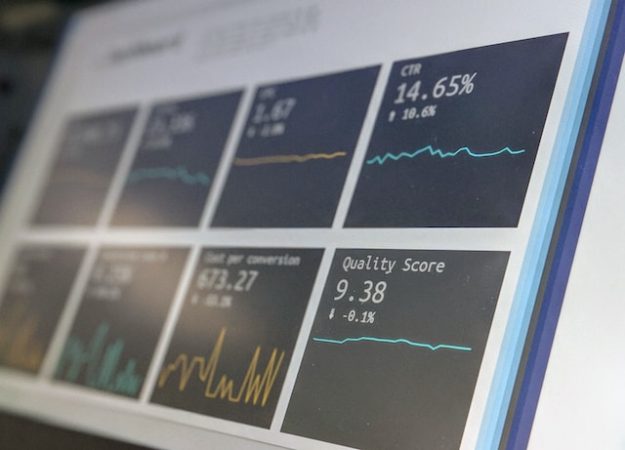
- 1. Introduction: What is SEM?
- 2. Setting Clear Goals and Objectives
- 3. Conducting Thorough Keyword Research
- 4. Crafting Engaging Ad Copy
- 5. Designing Highly Relevant Landing Pages
- 6. Optimizing Ad Campaigns for Mobile Devices
- 7. Implementing A/B Testing
- 8. Tracking and Analyzing Performance
- 9. Monitoring Competitor Strategies
- 10. Leveraging Remarketing Techniques
- 11. Optimizing for Local Searches
- 12. Embracing Voice Search Optimization
- 13. Staying Up-to-Date with Algorithm Changes
- 14. Investing in Professional SEM Services
- 15. Conclusion
- Frequently Asked Questions (FAQs)
Digimagaz.com – Are you looking to maximize your online presence and drive more targeted traffic to your website? If so, implementing a successful Search Engine Marketing (SEM) campaign is crucial. SEM combines paid advertising and search engine optimization (SEO) techniques to boost your website’s visibility on search engine results pages (SERPs). In this article, we will explore proven tips and strategies to help you run effective SEM campaigns that yield impressive results.
1. Introduction: What is SEM?
SEM, or Search Engine Marketing, is a digital marketing strategy that involves promoting websites by increasing their visibility on search engine results pages through paid advertising and SEO practices. It encompasses various techniques, including pay-per-click (PPC) advertising, keyword optimization, and improving website ranking on SERPs. By effectively implementing SEM strategies, businesses can increase their online presence, attract targeted traffic, and boost conversions.
2. Setting Clear Goals and Objectives
Before launching an SEM campaign, it’s essential to establish clear goals and objectives. Determine what you want to achieve, whether it’s driving more traffic to your website, increasing sales, or building brand awareness. By defining your goals, you can tailor your SEM strategies accordingly and measure their effectiveness.
3. Conducting Thorough Keyword Research
Keyword research is the backbone of a successful SEM campaign. Identify relevant keywords and phrases that your target audience is likely to use when searching for products or services similar to yours. Tools like Google Keyword Planner and SEMrush can assist in finding high-volume keywords with low competition. Incorporate these keywords strategically into your website content, ad campaigns, and landing pages to improve visibility and attract qualified traffic.
4. Crafting Engaging Ad Copy
Compelling ad copy is crucial for capturing the attention of potential customers. Write concise, persuasive, and relevant ad copy that highlights the unique selling points of your products or services. Use language that resonates with your target audience and includes a clear call-to-action (CTA) to encourage them to take the desired action.
5. Designing Highly Relevant Landing Pages
When users click on your ads, they should be directed to highly relevant landing pages that align with their search intent. Optimize your landing pages with persuasive headlines, engaging content, and visually appealing elements. Ensure that the landing page offers a seamless user experience and delivers on the promises made in the ad copy.
6. Optimizing Ad Campaigns for Mobile Devices
In today’s mobile-driven world, optimizing your SEM campaigns for mobile devices is vital. Create mobile-friendly ad formats and landing pages that provide an optimal browsing experience across different screen sizes. Mobile optimization not only improves user experience but also positively impacts your ad quality score, leading to better ad placement and lower costs.
7. Implementing A/B Testing
To maximize the effectiveness of your SEM campaigns, conduct A/B testing on different elements such as ad copy, headlines, landing pages, and CTAs. By testing and comparing different variations, you can identify the most effective strategies and optimize your campaigns accordingly. Make data-driven decisions to continually improve your SEM performance.
8. Tracking and Analyzing Performance
Tracking and analyzing the performance of your SEM campaigns is crucial for understanding what works and what doesn’t. Utilize analytics tools like Google Analytics or Bing Webmaster Tools to monitor key metrics such as click-through rates (CTR), conversion rates, bounce rates, and average session duration. This data will provide valuable insights to refine your strategies and achieve better results.
9. Monitoring Competitor Strategies
Stay informed about your competitors’ SEM strategies to gain a competitive edge. Analyze their ad copy, keywords, and landing pages to identify opportunities for improvement. Monitor their performance and adjust your campaigns accordingly to stay ahead in the search engine rankings.
10. Leveraging Remarketing Techniques
Remarketing is a powerful SEM strategy that allows you to target users who have previously visited your website. By displaying personalized ads to these users across various platforms, you can increase brand recall and encourage them to revisit and convert. Implementing remarketing campaigns can significantly boost your SEM ROI.
11. Optimizing for Local Searches
If you have a brick-and-mortar business or serve customers within specific locations, optimizing your SEM campaigns for local searches is crucial. Include location-specific keywords and create location-based ad campaigns to target users in your vicinity. Optimize your Google My Business listing and encourage customers to leave reviews to improve your local search visibility.
12. Embracing Voice Search Optimization
With the rise of voice assistants like Siri, Alexa, and Google Assistant, optimizing your SEM campaigns for voice search is becoming increasingly important. Voice queries often differ from text-based searches, so adapt your keyword strategy accordingly. Optimize your website content to provide concise and conversational answers to voice search queries.
13. Staying Up-to-Date with Algorithm Changes
Search engine algorithms are continually evolving, so it’s crucial to stay up-to-date with the latest changes and trends. Follow reputable SEO blogs and industry publications to remain informed about algorithm updates and adjust your SEM strategies accordingly. Adapting to algorithm changes ensures that your campaigns remain effective and aligned with search engine guidelines.
14. Investing in Professional SEM Services
If you lack the time, expertise, or resources to manage your SEM campaigns effectively, consider investing in professional SEM services. Hiring an experienced SEM agency or consultant can save you time and help you achieve optimal results. They have in-depth knowledge of industry best practices and can implement advanced strategies to maximize your SEM performance.
15. Conclusion
Implementing effective SEM campaigns is essential for driving targeted traffic, increasing conversions, and growing your online presence. By setting clear goals, conducting thorough keyword research, crafting compelling ad copy, and optimizing your campaigns, you can achieve remarkable results. Stay up-to-date with the latest trends, monitor competitor strategies, and leverage the power of remarketing and local search optimization. Remember to analyze your performance, make data-driven decisions, and consider professional SEM services if needed. By following these proven tips, you’ll be well on your way to running successful SEM campaigns.
Frequently Asked Questions (FAQs)
Q1: How long does it take to see results from SEM campaigns? A1: The timeline for seeing results from SEM campaigns can vary depending on several factors, such as competition, budget, and campaign optimization. Generally, it’s recommended to give your campaigns at least a few weeks to gather sufficient data and make adjustments accordingly.
Q2: Can I run SEM campaigns alongside SEO efforts? A2: Absolutely! In fact, combining SEM and SEO can yield powerful results. While SEO focuses on organic search visibility, SEM allows you to target specific keywords and gain immediate visibility through paid advertising. Integrating both strategies can maximize your online presence and drive more targeted traffic to your website.
Q3: Is it necessary to use a professional SEM agency or consultant? A3: It’s not mandatory, but it can be highly beneficial, especially if you lack the expertise or resources to manage SEM campaigns effectively. Professional SEM agencies or consultants have extensive knowledge and experience in the field and can help optimize your campaigns for better performance and results.
Q4: What are the costs associated with SEM campaigns? A4: The costs of SEM campaigns can vary depending on factors such as keyword competitiveness, industry, and ad targeting options. SEM campaigns typically operate on a pay-per-click (PPC) model, where you pay only when someone clicks on your ad. Setting a budget and closely monitoring campaign performance can help you manage costs effectively.
Q5: How can I track the performance of my SEM campaigns? A5: Tracking the performance of your SEM campaigns can be done using various analytics tools like Google Analytics, Bing Webmaster Tools, or the platform you’re running your ads on. These tools provide valuable insights into key metrics such as click-through rates, conversions, and overall campaign performance.
Read More :





